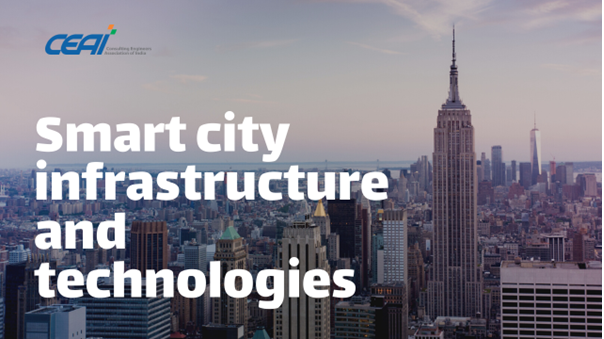
As our cities continue to grow and expand, so too does the need for innovative and sustainable smart city infrastructure and technologies. With the challenges of climate change, population growth, and urbanization, smart city solutions have become an increasingly critical tool for improving the quality of life of urban citizens while reducing environmental impact and promoting economic development.
What is a Smart City?
A smart city is a city that leverages digital technologies and data to improve urban management and the quality of life of its inhabitants. Smart cities aim to increase efficiency, sustainability, and livability by integrating and optimizing infrastructure, services, and resources. By leveraging real-time data and communication technologies, smart cities can optimize the use of resources, reduce energy consumption, enhance mobility, and improve service delivery.

Smart Transportation
Smart transportation is a key component of a smart city. It includes a range of technologies that make transportation more efficient, sustainable, and safe. Intelligent transportation management systems (ITS) use real-time data to optimize traffic flow, reduce congestion, and improve safety. These systems can be used to adjust traffic signals based on traffic patterns, provide real-time traffic updates to drivers, and help emergency vehicles navigate through traffic.

Electric vehicles (EVs) are becoming an increasingly popular form of transportation in smart cities. They are more efficient and produce fewer emissions than traditional gasoline-powered vehicles. In addition, smart cities are investing in public transportation systems that are more efficient and sustainable, such as electric buses and trains.
Smart Energy
Smart energy is another key component of a smart city. It includes technologies that improve energy efficiency, reduce waste, and increase the use of renewable energy sources. Smart energy technologies include smart grids, energy-efficient buildings, and renewable energy sources such as solar and wind power.
Smart grids use real-time data to optimize the distribution of energy. They can adjust the distribution of energy based on demand and supply, reduce energy waste, and improve the reliability of the energy grid.

Energy-efficient buildings are designed to reduce energy consumption and waste. They include features such as energy-efficient lighting, heating and cooling systems, and insulation. In addition, many smart cities are investing in renewable energy sources such as solar and wind power. These sources of energy are clean, sustainable, and produce little to no waste.
Smart Waste Management
Smart waste management is another important component of a smart city. It includes technologies that reduce waste, improve recycling, and make the waste collection more efficient. Smart waste management technologies include waste sensors, smart bins, and recycling programs.
Waste sensors are used to monitor the amount of waste in a given area. They can be used to optimize waste collection routes and reduce waste overflow. Smart bins are designed to separate waste into different categories such as recyclables, compost, and landfill waste. This makes it easier to recycle and reduces the amount of waste that ends up in landfills.

Recycling programs are an important part of smart waste management. They encourage residents and businesses to recycle and reduce the amount of waste they produce. In addition, many smart cities are investing in waste-to-energy technologies, which convert waste into energy.
Smart Water Management
Smart water management is another important component of a smart city. It includes technologies that improve the efficiency of water use, reduce water waste, and ensure the quality of drinking water. Smart water management technologies include water sensors, leak detection systems, and water recycling programs.

Water sensors are used to monitor water usage and identify areas where water is being wasted. Leak detection systems are used to identify leaks in water distribution systems and prevent water loss. Water recycling programs are used to treat and recycle wastewater, reducing the amount of freshwater that is used.
Conclusion
In conclusion, smart city infrastructure and technologies are crucial for creating more efficient, sustainable, and livable cities. From transportation to energy, waste management, and water management, the technologies and solutions available for smart city infrastructure are vast and diverse. While there are challenges to implementing smart city solutions, the benefits of these technologies are too significant to ignore. As more cities around the world embrace the concept of smart cities, we can look forward to a future of cleaner, greener, and more connected cities.
